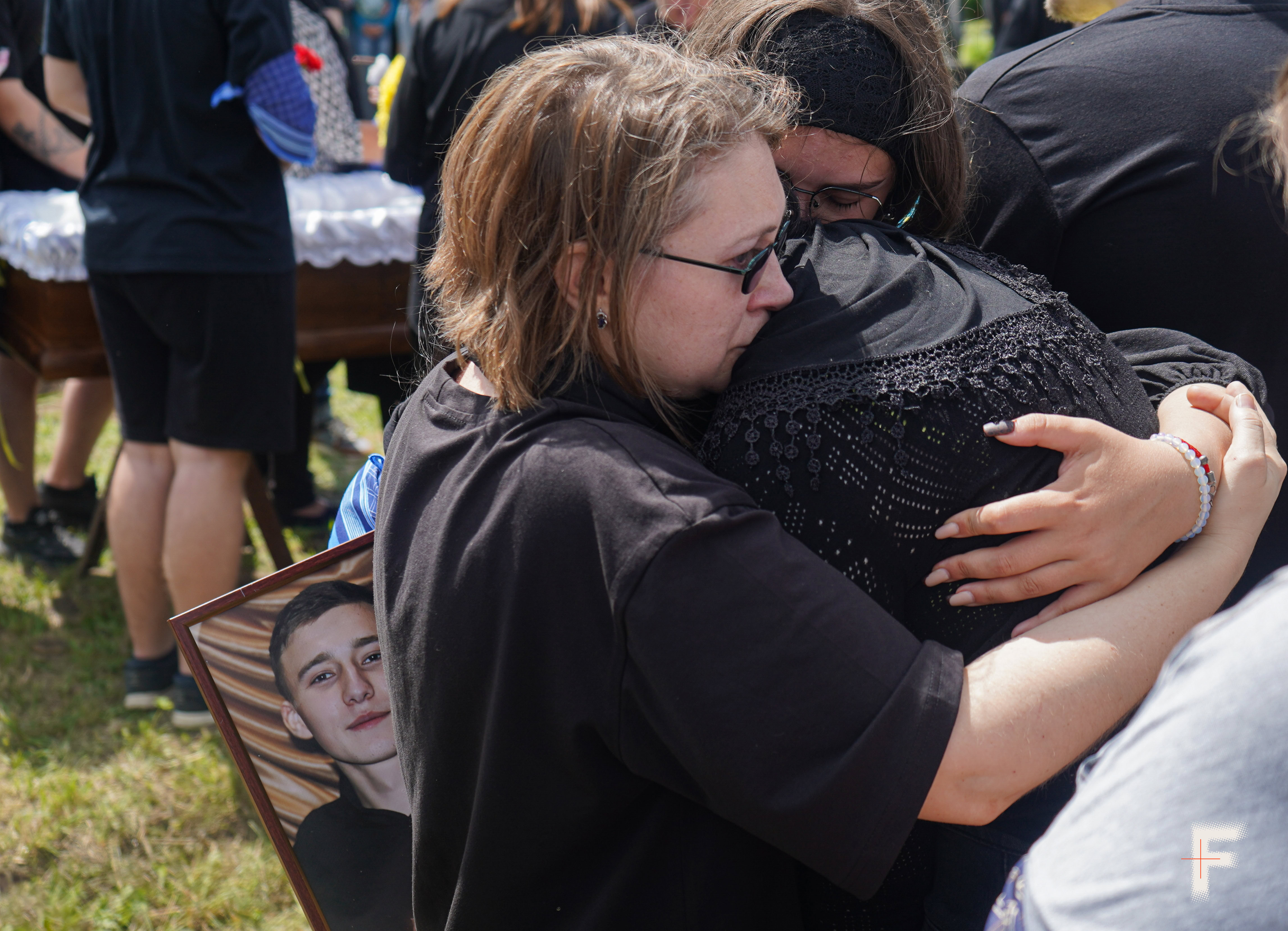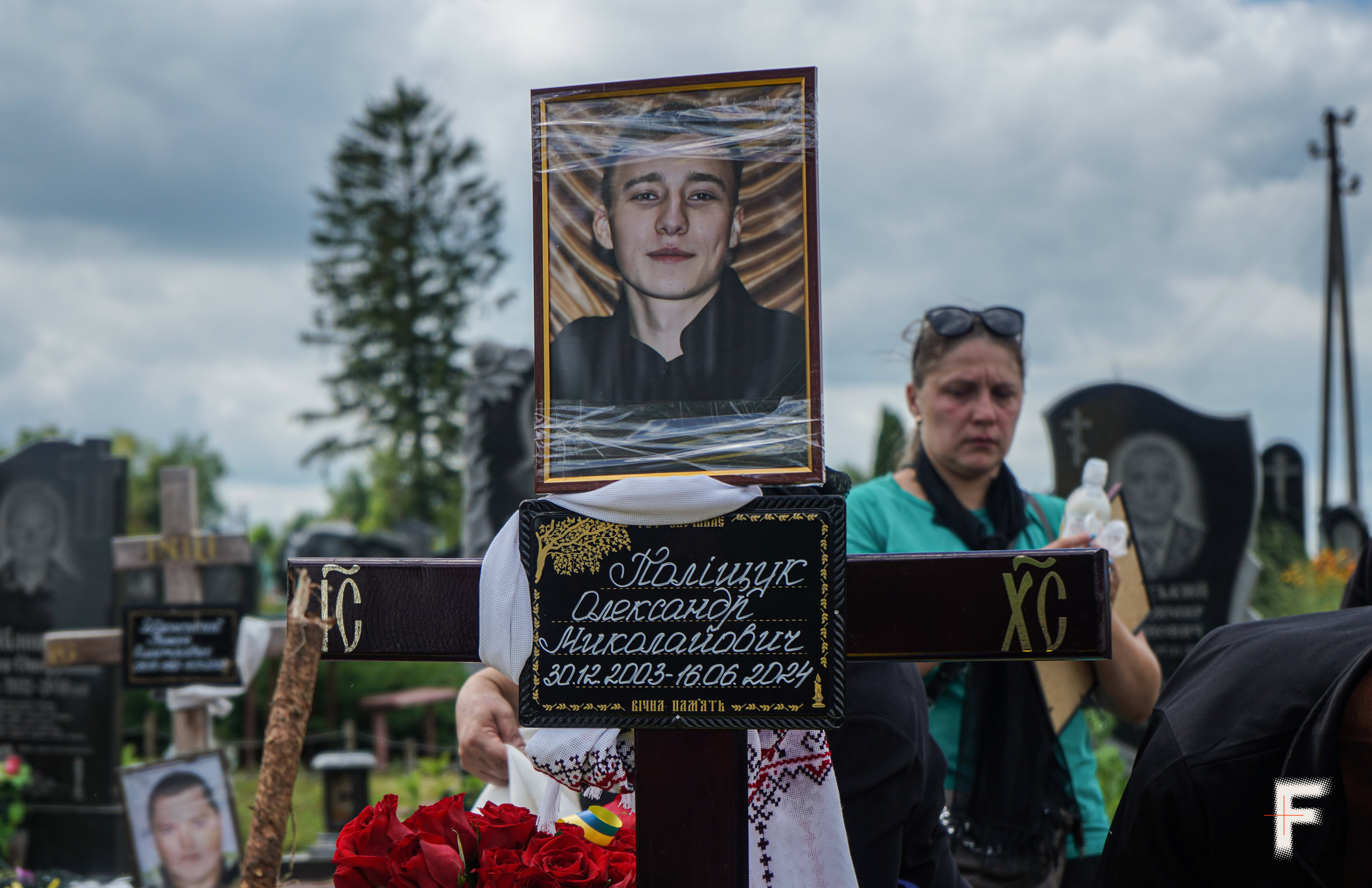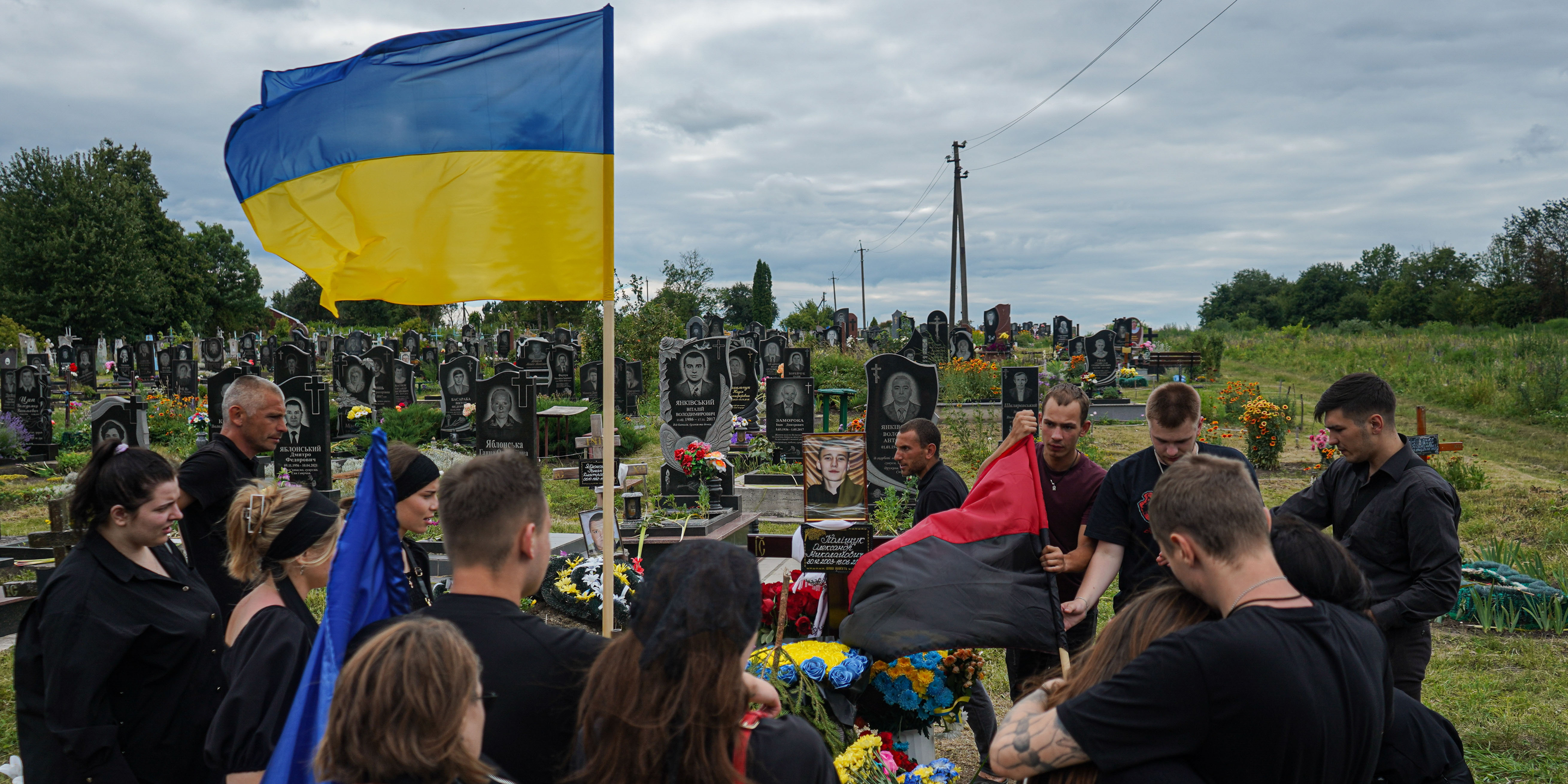

“I took this photo for graduation, not for a funeral” – a reporter on how Ukrainians are losing their youth
At the start of the full-scale invasion, the youngest soldiers were those born in 2003. Now — those born in 2007. Their feats and deaths are felt especially acutely, as recent school photographs have become portraits on graves. Frontliner reporter Albina Karman reports on the loss of youth.
During the first year of the full-scale war, I worked in investigative journalism, and among other things, documenting Russian war crimes. For more than two years now, I have been working in war reporting. During this time, the hardest thing has been to watch the generation of my peers disappear — I am 21 years old.
May 6, 2024. A note on my phone
No, it wasn’t a bad day. It just could have been better if that curly, smiling boy I went to high school with had smiled at everyone in the hallway, and everyone had smiled back at him as they went to their physics, IT, and language classes. The day would have been better if, back then at 19, his life had not been cut short near Bakhmut. Volodymyr Shkrynda, 2003 — 2023.
No, the week was not bad. It just could have been better if you were now going to a shelter outside Kharkiv to record a conversation with a blond, sincere guy who left the occupied territories to fight for the liberation of his home. He would speak calmly about death until it cut short his young 20 near Bakhmut. The week would have been better if he had told his friends: “I’m in training, I like everything.” Ihor Muzhychenko, 2003–2024.
No, it wasn’t a bad month. It just could have been better if you had met an old acquaintance who walked 10 kilometers (6.2 miles) with us on foot to the club, saw everyone home to neighboring villages, ordered songs for friends from the DJ, and simply spent evenings on the bank of a tributary of the Pivdennyi Buh (Southern Bug) River. But Mykolaiv held out, thanks to many deaths, and somewhere among them was his young 21 years. Vadym Hotsuliak, 2001 – 2022.
(Editor’s note: Mykolaiv is a major city in southern Ukraine that endured heavy shelling in 2022 as it blocked Russia’s advance toward Odessa.)
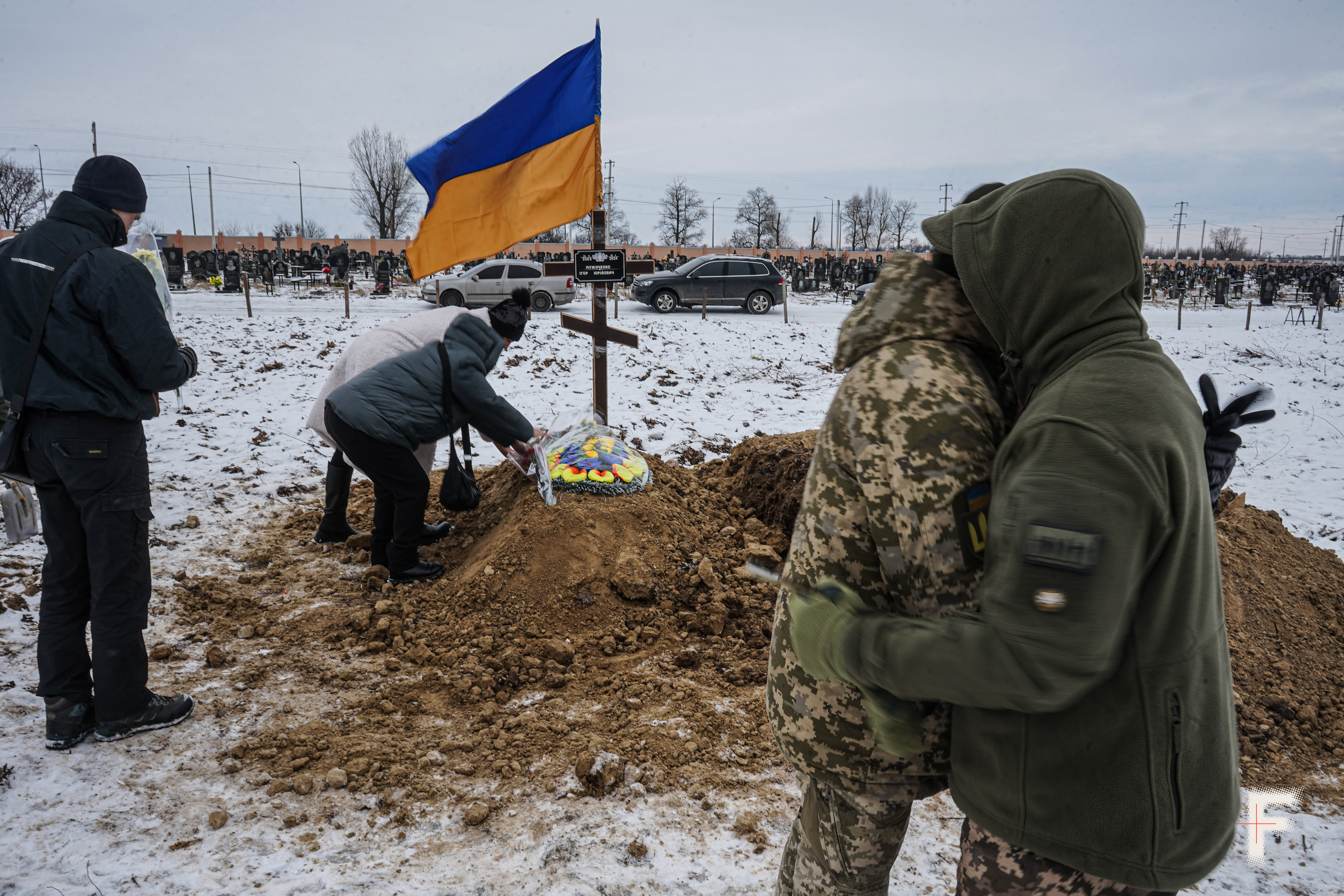

June 16, 2024. Another loss
I am returning from an assignment in the Kupiansk sector of Kharkiv Oblast. My entire Instagram feed is black and white; acquaintances and friends are sharing a photo of a fallen young man. I do not immediately recognize him — he has grown up since we last saw each other in 2023.
Oleksandr (Sasha) Polishchuk was a serviceman of the 36th Separate Marine Brigade. I barely knew him. Sasha was my childhood friend’s classmate. When they celebrated graduation in 2023, I was invited as the photographer. So I photographed the graduates in their college assembly hall against old gold curtains. I had not gone back to those photos since I gave them to the graduates; I had even forgotten about them.
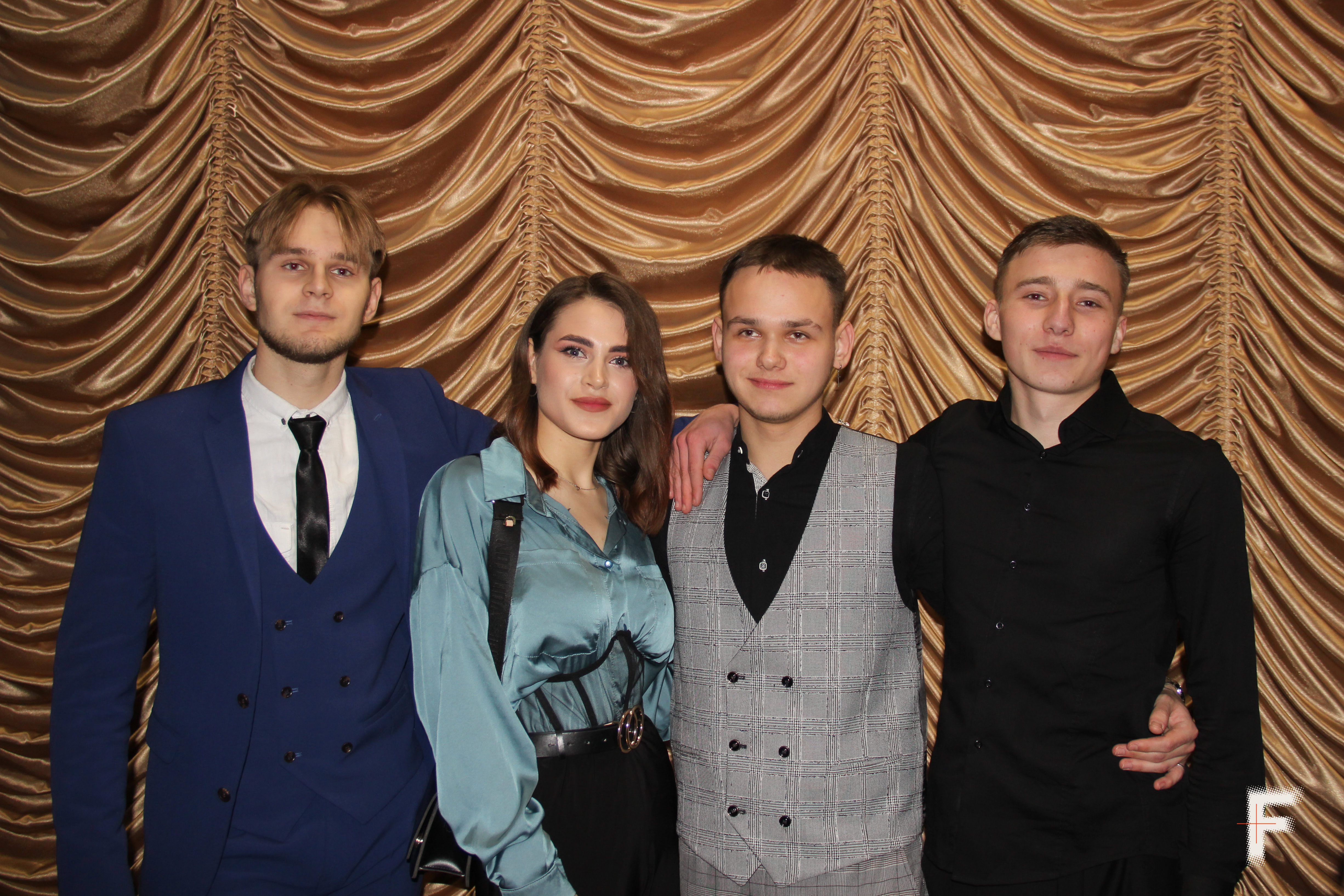

June 20, 2024. Rozsosha, Khmelnytskyi Oblast
Sasha’s portrait, with those same gold curtains behind him, is driven out of his yard in a black funeral van. I go pale. Next to me stands my friend Maryna, who has been waiting for her boyfriend to return from captivity for the third year.
“Is everything okay?” she asks. “Yes, it’s just that I took this photo for graduation, not for a funeral,” I reply. At that moment, Maryna, Sasha and I are all 20 years old.
After the traditional farewell ceremony with vesilna rizka (ceremonial wedding switch/rod) and korovai (ceremonial wedding bread) (in the Khmelnytskyi region it is customary to use wedding paraphernalia at the funerals of unmarried men), when all the relatives and adults have left, only the young people remain with Sasha. There are 15 of us, and we sing the Ukrainian anthem at his grave until nightfall. For some reason, after that, the air becomes lighter, and there is a feeling of elation, as if everything that had not been possible before will now definitely work out. It is as if someone has sent us the inspiration we were lacking. As if now we have to manage to do even more for the sake of those who, from the sky, have given us their strength.
Nov. 19, 2024. A new note
I am going to the Rivne Oblast for a story about a 13-year-old boy who plays trumpet in a funeral band and sees off fallen defenders. Besides him, two more minors aged 16 and 17 play in the band. I go with them to a funeral — they are my main subjects for the piece. But for a moment I am distracted from them when we arrive at the yard of the fallen Denys Pereta, born in 2000. I try to remember whether I have seen older people in coffins over the years of the war, but I cannot recall. And then, in tears, for the first time I form and write in a note: “I am documenting the loss of my generation.”
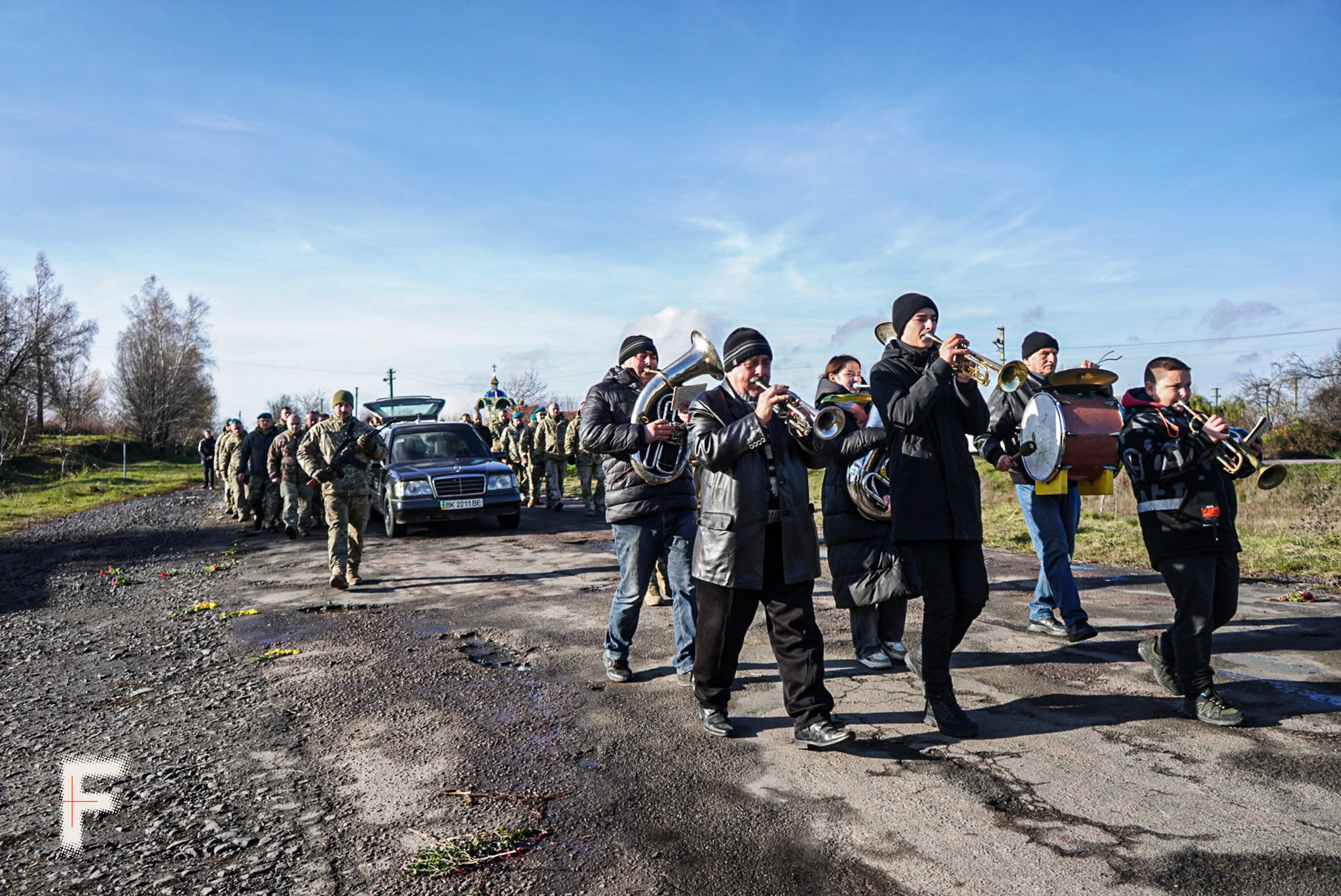

July 28, 2025. An inevitable realization
I join an online work meeting with the Frontliner team. I wait calmly for my turn to talk about the completed pieces and, in the middle of it, decide to text my friend with the call sign “Chuha” from the Azov Brigade. He is a little older than me; he is 22. We have not been in touch for a long time, and I am worried, because the sector of the front near Toretsk where he is fighting is very difficult.
“Did something happen?” I ask.
“We buried my brother. My own brother, younger. 18 years old. Now I am learning to live with it,” Chuha says.
My friend worried a lot that his younger brother decided to serve immediately after turning 18; it had given him no peace from the first day. But “Chuha” believed that he and his brother would survive this war together. For a time the young Arsen Derkach was considered missing, but there was no miracle
I return to the planning meeting, tell the editors a bit distractedly about where things stand, put on my cap, and go out into the field. A thunderstorm is approaching. A very large dark cloud draws over the sky above the endless fields, but some higher forces create an opening in it so that rays of the searing evening sun break through. Heavy drops of rain begin to fall on my face and I don’t hide from it; let it wash away the burden of the inevitable realization. Here, in the middle of the field, it becomes easier to breathe: you inhale sorrow, and exhale life. Because someone from the sky really does give us the strength so that we manage to bring to life what they could not.
Author: Albina Karman
Adapted: Jared Goyette
